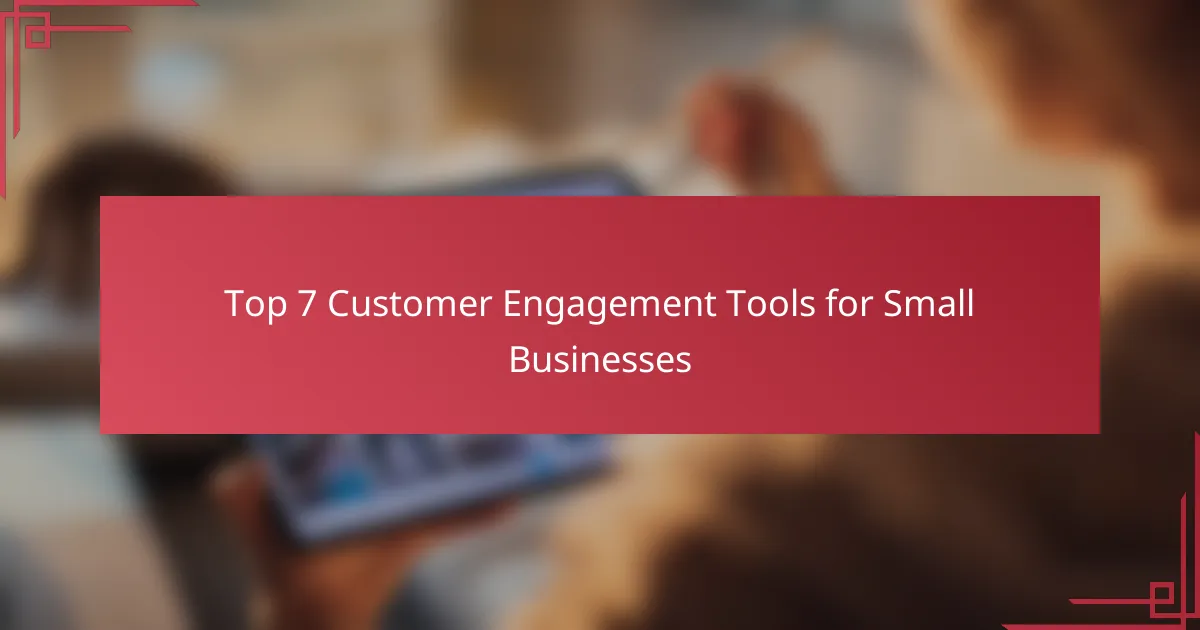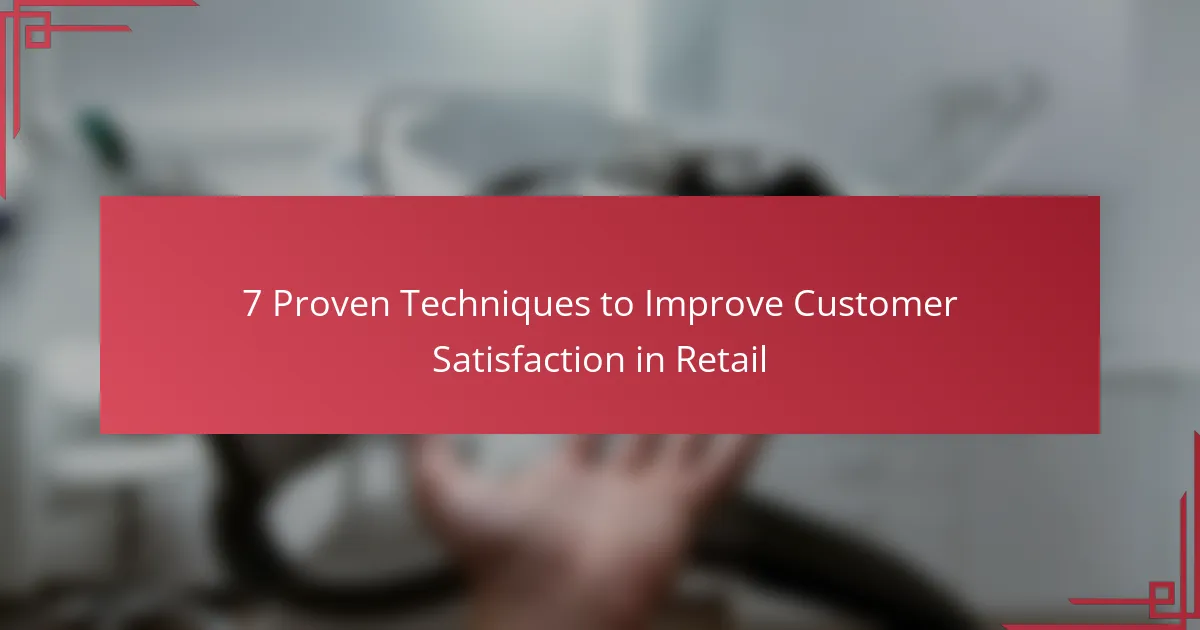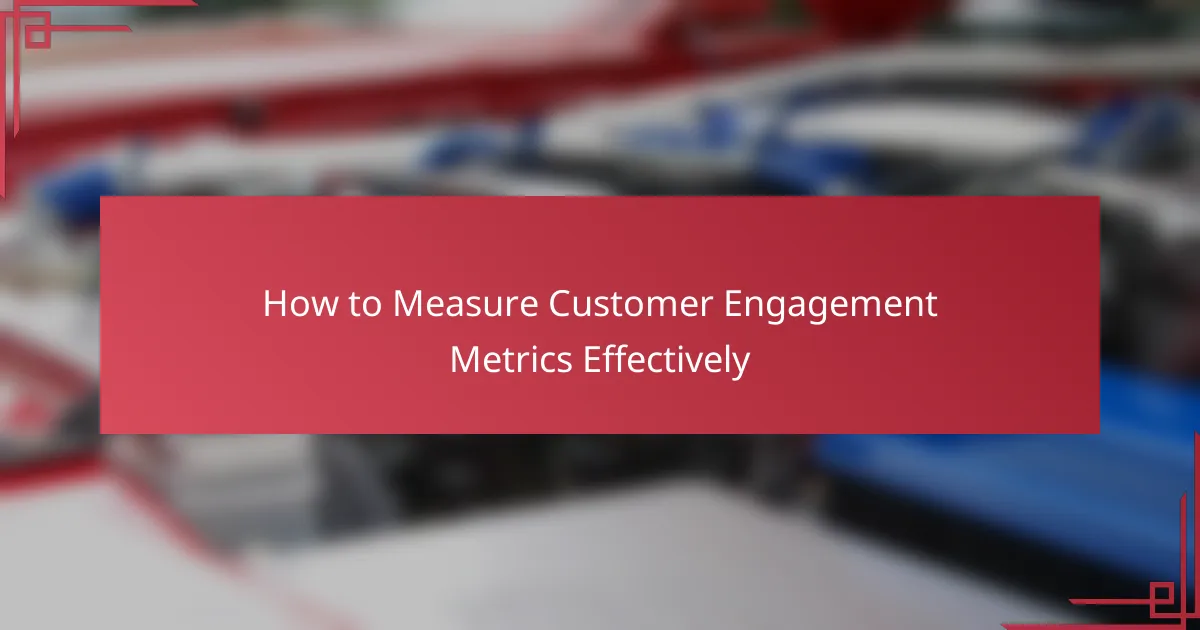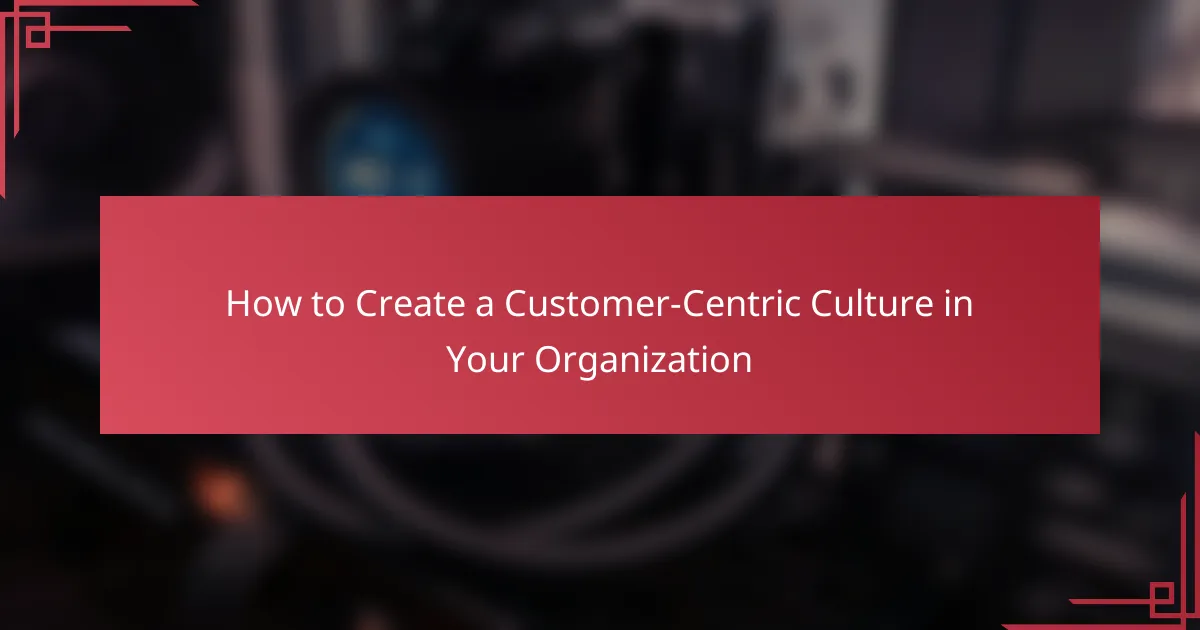In today’s competitive landscape, small businesses in the UK can significantly benefit from effective customer engagement tools that enhance communication and foster strong relationships. These tools not only streamline processes but also provide valuable insights into customer behavior, enabling businesses to connect more effectively with their audience. By prioritizing features that improve user experience and offer robust analytics, small businesses can drive sales and boost customer satisfaction.
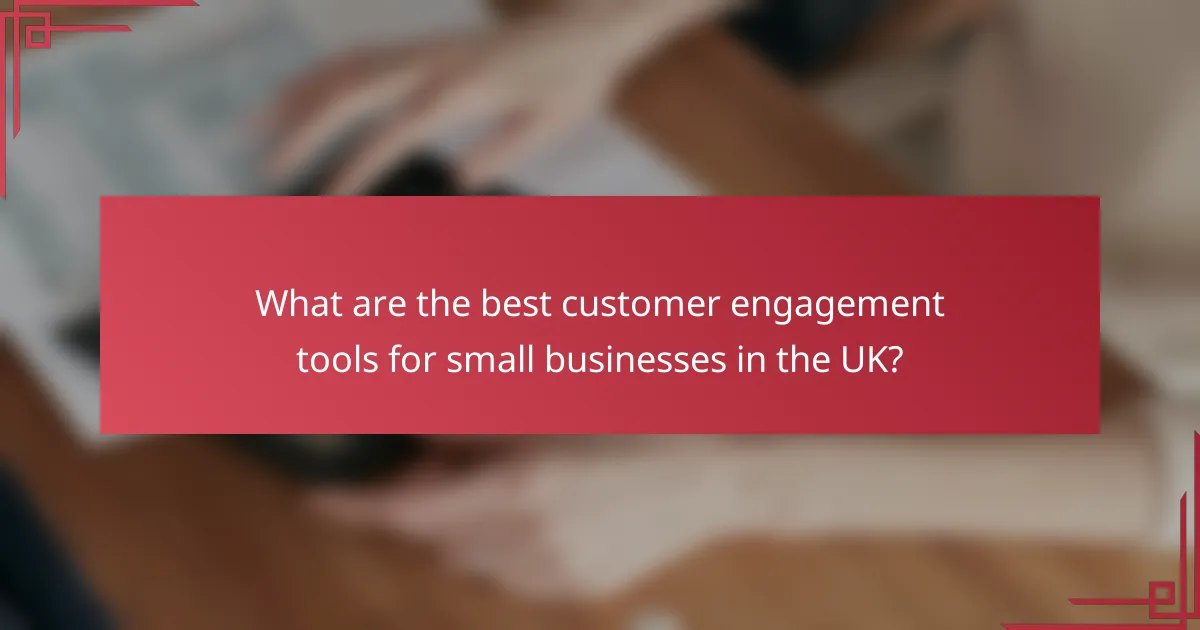
What are the best customer engagement tools for small businesses in the UK?
The best customer engagement tools for small businesses in the UK focus on enhancing communication, improving customer relationships, and driving sales. These tools help streamline processes and provide valuable insights into customer behavior, making it easier for small businesses to engage effectively with their audience.
HubSpot
HubSpot is an all-in-one marketing, sales, and service platform that offers a robust suite of tools for customer engagement. It features email marketing, social media management, and customer relationship management (CRM) capabilities, making it suitable for small businesses looking to consolidate their efforts.
One key benefit is its user-friendly interface, which allows businesses to automate marketing tasks and track customer interactions easily. HubSpot also offers a free tier, which is ideal for startups and small enterprises to begin their engagement journey without significant upfront costs.
Mailchimp
Mailchimp is primarily known for its email marketing capabilities but has evolved into a comprehensive marketing platform. It allows small businesses to create targeted email campaigns, manage mailing lists, and analyze campaign performance.
Mailchimp’s automation features enable businesses to send personalized messages based on customer behavior, enhancing engagement. The platform also offers a free plan for users with limited needs, making it accessible for small businesses just starting out.
Zoho CRM
Zoho CRM is a customer relationship management tool designed to help small businesses manage their sales, marketing, and support activities. It offers features like lead management, sales automation, and analytics, which are crucial for effective customer engagement.
With its affordable pricing and customizable options, Zoho CRM is suitable for small businesses looking to scale their operations. The platform also integrates with various other Zoho applications, providing a seamless experience for users.
Intercom
Intercom is a customer messaging platform that focuses on real-time communication with customers. It enables businesses to engage users through live chat, chatbots, and targeted messaging, making it easier to address customer inquiries promptly.
This tool is particularly beneficial for small businesses that want to provide instant support and improve customer satisfaction. Intercom’s features allow for personalized interactions based on user behavior, which can significantly enhance engagement rates.
Freshdesk
Freshdesk is a customer support software that helps small businesses manage customer inquiries across multiple channels, including email, phone, and social media. Its ticketing system allows for efficient tracking and resolution of customer issues.
By using Freshdesk, businesses can improve their response times and maintain a high level of customer satisfaction. The platform also offers automation features to streamline repetitive tasks, allowing teams to focus on more complex customer interactions.
SurveyMonkey
SurveyMonkey is a powerful tool for gathering customer feedback through surveys and polls. Small businesses can use it to understand customer preferences, measure satisfaction, and gather insights for improvement.
Creating surveys is straightforward, and the platform provides various templates to suit different needs. Analyzing the results can help businesses make informed decisions that enhance customer engagement and loyalty.
Hootsuite
Hootsuite is a social media management platform that allows small businesses to schedule posts, monitor engagement, and analyze social media performance. It helps streamline social media efforts, ensuring consistent communication with customers across various platforms.
By using Hootsuite, businesses can engage with their audience more effectively and respond to comments or messages in a timely manner. This tool is essential for maintaining an active online presence and fostering customer relationships.
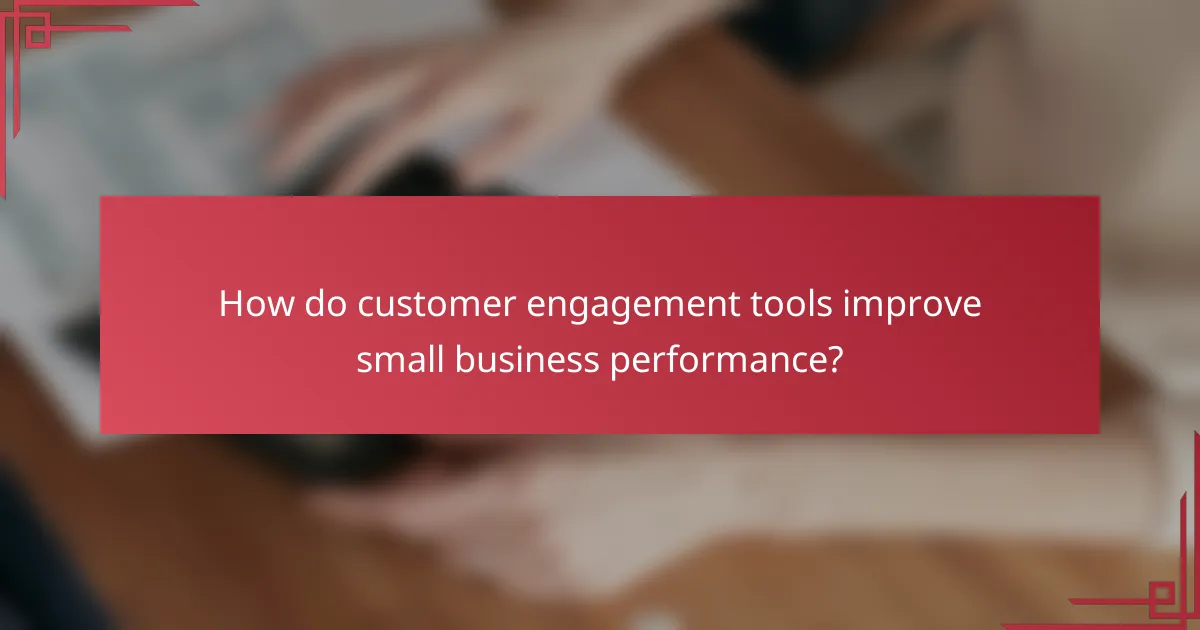
How do customer engagement tools improve small business performance?
Customer engagement tools enhance small business performance by streamlining communication, fostering loyalty, and driving sales. These tools help businesses connect with customers more effectively, leading to improved satisfaction and increased revenue.
Enhance customer communication
Effective customer communication is crucial for small businesses to build relationships and address customer needs. Engagement tools like chatbots, email marketing platforms, and social media management software enable timely responses and personalized interactions.
For instance, using a chatbot on your website can provide instant answers to common questions, reducing wait times and improving customer experience. Consider integrating tools that allow for multi-channel communication to reach customers where they are most active.
Increase customer retention
Customer retention is vital for sustained growth, and engagement tools can significantly contribute to this goal. By utilizing loyalty programs and personalized marketing campaigns, small businesses can encourage repeat purchases and foster brand loyalty.
For example, implementing a rewards system through an engagement platform can incentivize customers to return. Regularly analyzing customer feedback through surveys can also help identify areas for improvement and enhance satisfaction.
Boost sales conversions
Customer engagement tools can directly influence sales conversions by providing insights into customer behavior and preferences. Tools that track user interactions and analyze data can help businesses tailor their sales strategies effectively.
For example, using a customer relationship management (CRM) system can help identify high-potential leads and automate follow-ups. Additionally, A/B testing different marketing messages can reveal what resonates best with your audience, ultimately increasing conversion rates.
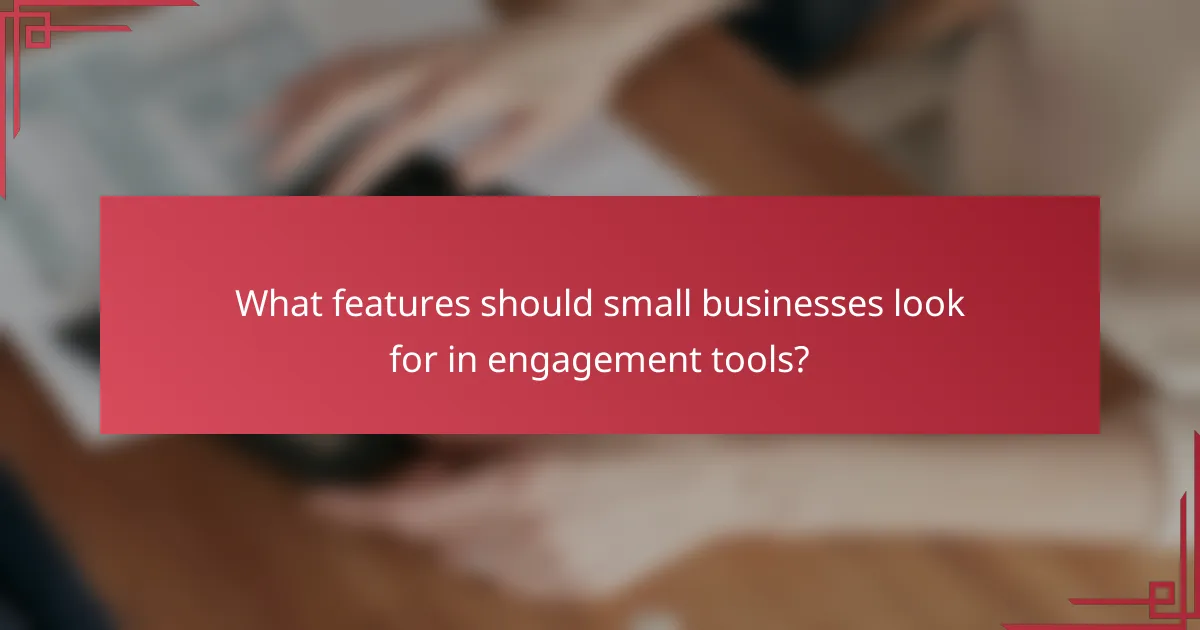
What features should small businesses look for in engagement tools?
Small businesses should prioritize features that enhance user experience, streamline operations, and provide valuable insights. Key aspects include ease of use, integration with existing systems, and robust analytics to track customer interactions and engagement levels.
User-friendly interface
A user-friendly interface is crucial for small businesses as it ensures that team members can quickly adopt and utilize the engagement tool without extensive training. Look for tools that offer intuitive navigation, clear layouts, and customizable dashboards to suit different user needs.
Consider tools that provide mobile access, allowing your team to engage with customers on-the-go. This flexibility can significantly enhance responsiveness and customer satisfaction.
Integration capabilities
Integration capabilities allow engagement tools to connect seamlessly with other software your business uses, such as CRM systems, email marketing platforms, and social media channels. This interconnectedness can streamline workflows and improve data accuracy.
When evaluating tools, check for compatibility with popular applications and APIs that facilitate data sharing. A tool that integrates well can save time and reduce the risk of errors caused by manual data entry.
Analytics and reporting
Analytics and reporting features are essential for understanding customer behavior and measuring the effectiveness of engagement strategies. Look for tools that offer real-time data tracking and customizable reporting options to analyze key metrics.
Effective analytics can help identify trends, assess campaign performance, and inform future marketing decisions. Choose tools that allow you to visualize data through charts and graphs, making it easier to interpret results and share insights with your team.
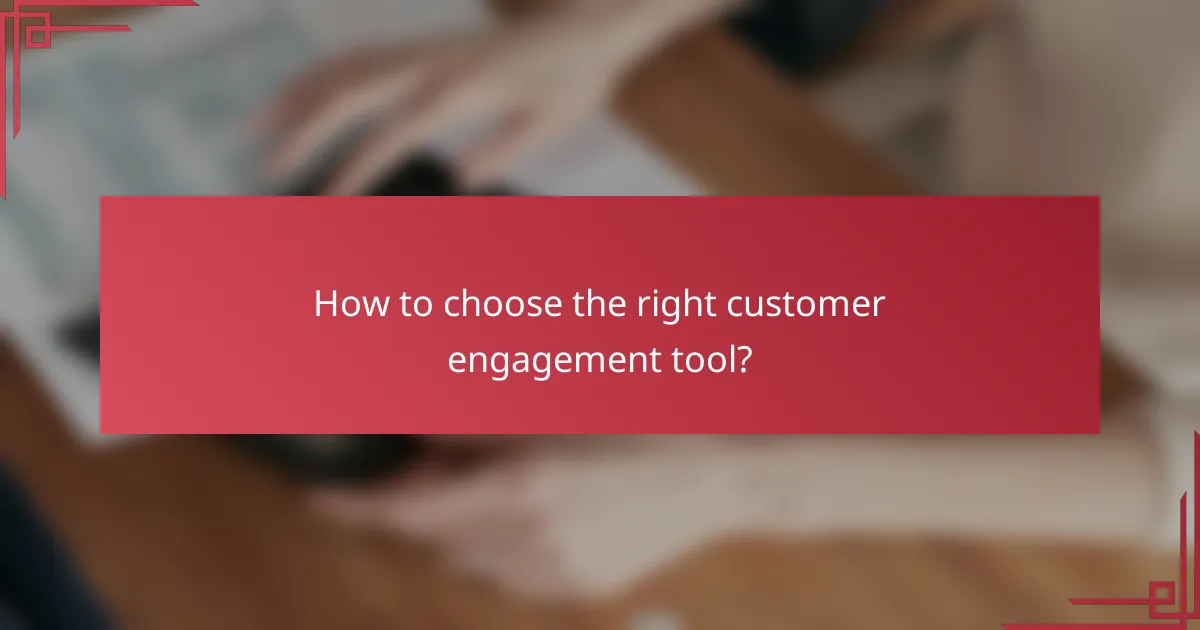
How to choose the right customer engagement tool?
Choosing the right customer engagement tool involves understanding your specific business needs and budget constraints. A well-selected tool can enhance customer interaction, streamline communication, and ultimately drive sales.
Define business needs
Start by identifying the specific goals you want to achieve with a customer engagement tool. Consider whether you need features for email marketing, social media management, customer feedback, or analytics. Each tool offers different functionalities, so aligning your needs with the tool’s capabilities is crucial.
For example, if your primary goal is to improve customer support, look for tools that offer live chat and ticketing systems. Alternatively, if you want to boost marketing efforts, focus on platforms that provide automation and segmentation features.
Evaluate budget constraints
Your budget will significantly influence your choice of customer engagement tools. Prices can vary widely, from free basic options to premium solutions costing hundreds of dollars per month. Determine how much you can allocate without compromising other areas of your business.
Consider not only the upfront costs but also any additional fees for features, integrations, or support. A tool that seems affordable may become costly if it lacks essential features or requires add-ons. Aim for a balance between cost and functionality to ensure you get the best value for your investment.
